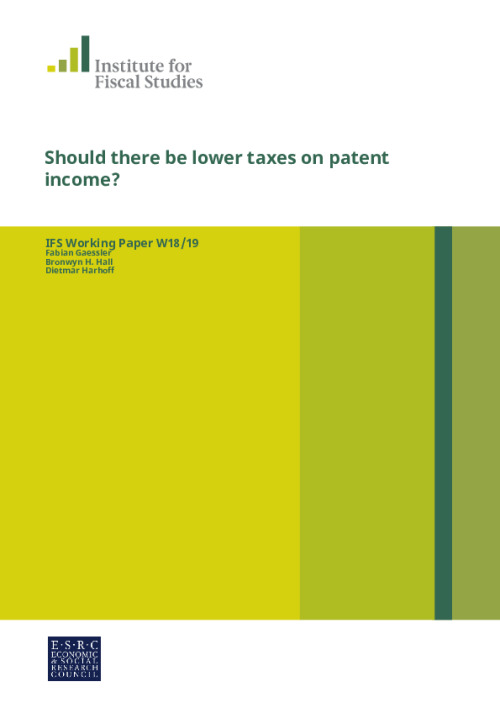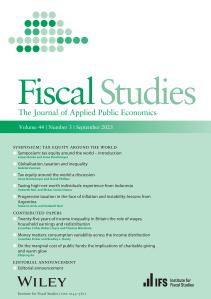Downloads

WP201819.pdf
PDF | 644.63 KB
A “patent box” is a term for the application of a lower corporate tax rate to the income derived from the ownership of patents. This tax subsidy instrument has been introduced in a number of countries since 2000. Using comprehensive data on patent filings at the European Patent Office, including information on ownership transfers pre‐ and post‐grant, we investigate the impact of the introduction of a patent box on international patent transfers, on the choice of ownership location, and on invention in the relevant country. We find that the impact on transfers is small but present, especially when the tax instrument contains a development condition and for high value patents (those most likely to have generated income), but that invention itself is not affected. This calls into question whether the patent box is an effective instrument for encouraging innovation in a country, rather than simply facilitating the shifting of corporate income to low tax jurisdictions.
Authors

International Research Fellow University of Munich
Dietmar is a Professor at the Institute for Innovation Research, Technology Management and Entrepreneurship, Munich School of Management and an International Fellow of the IFS. His research interests include technology and innovation.

Research Associate University of California, Berkeley
Bronwyn is Professor Emerita at the University of California at Berkeley and a Research Associate of the IFS.

Fabian Gaessler
Working Paper details
- DOI
- 10.1920/wp.ifs.2018.1918
- Publisher
- The IFS
Suggested citation
F, Gaessler and B, Hall and D, Harhoff. (2018). Should there be lower taxes on patent income?. London: The IFS. Available at: https://ifs.org.uk/publications/should-there-be-lower-taxes-patent-income (accessed: 1 July 2024).
More from IFS
Understand this issue

Election Special: Your questions answered
27 June 2024

Election Special: The big issues politicians haven't spoken about
25 June 2024

Election Special: The Labour manifesto explained
14 June 2024
Policy analysis

How would the parties’ tax and spending plans affect Scotland and Wales?
28 June 2024

What are the parties’ plans for benefits and taxes?
24 June 2024

Plaid Cymru manifesto: a response
13 June 2024
Academic research

Intertemporal income shifting and the taxation of business owner-managers
24 January 2024

Insurance, redistribution, and the inequality of lifetime income
2 November 2023

Symposium: tax equity around the world - introduction
11 September 2023